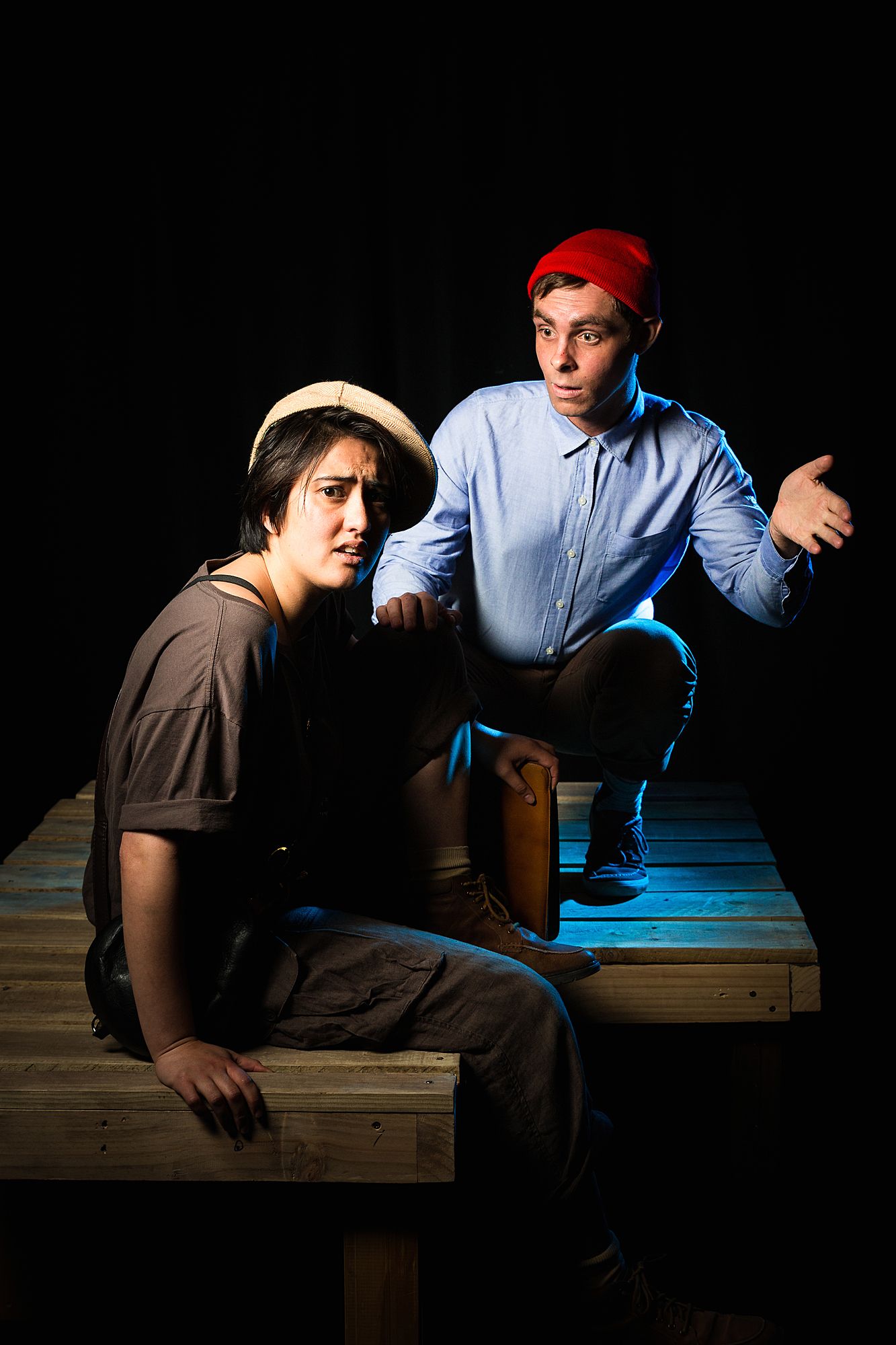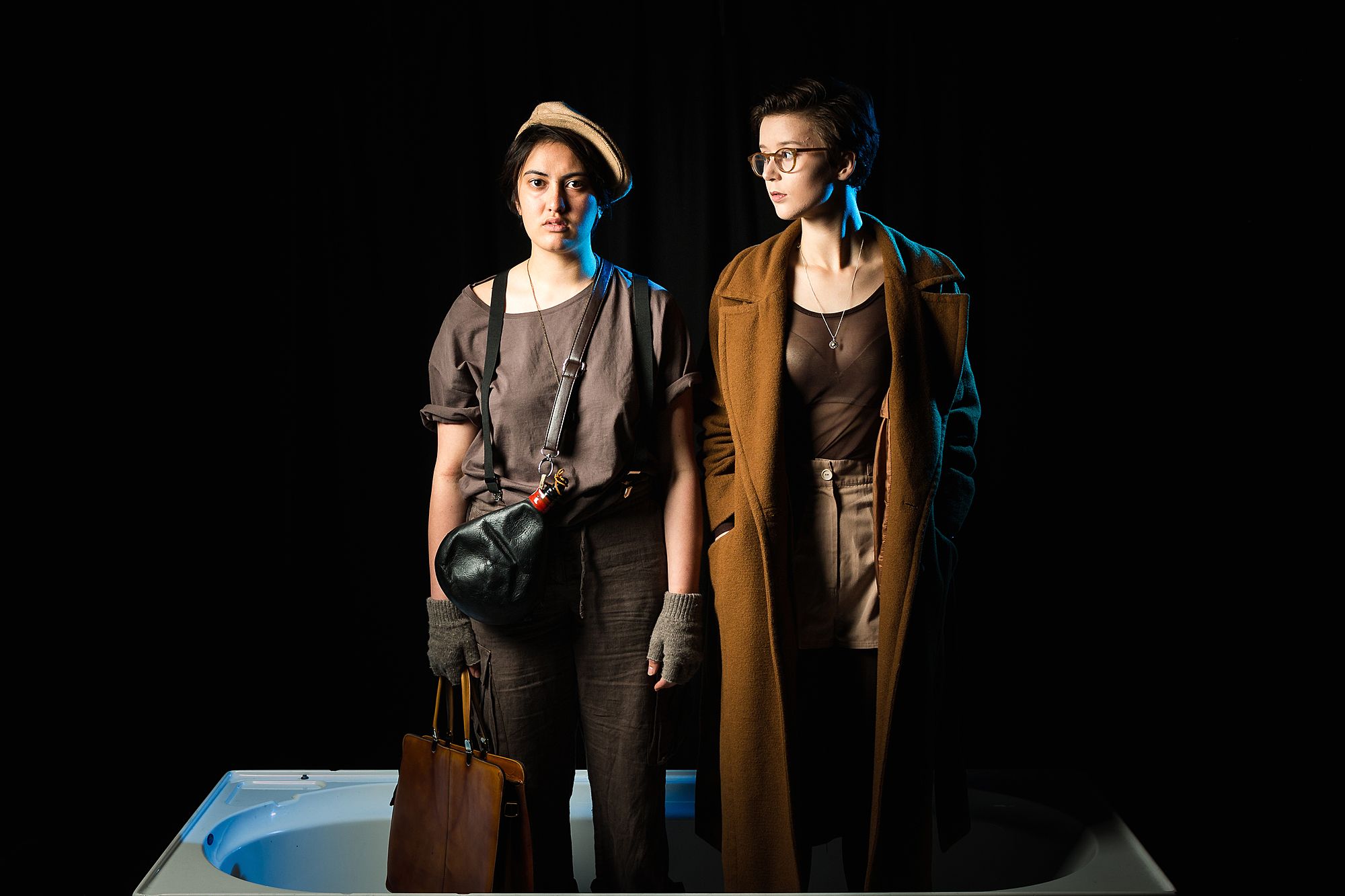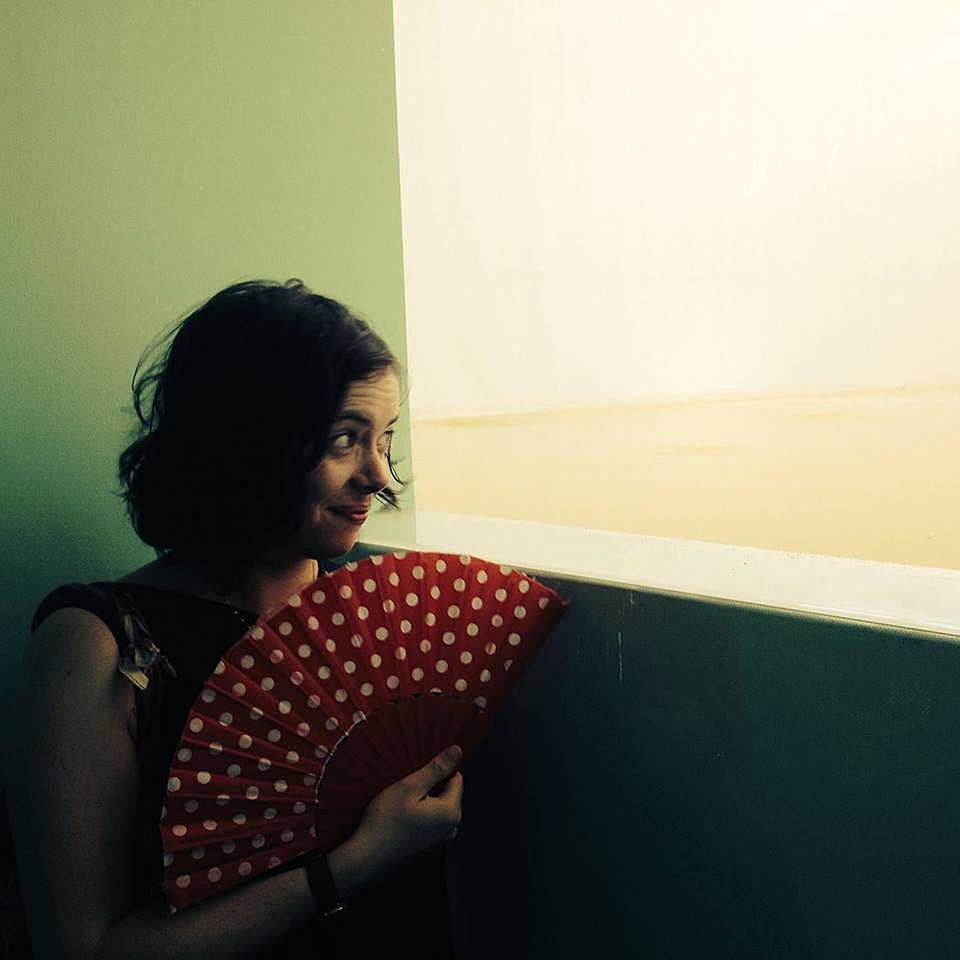The Weight of Water: A Review of Marine Snow
Finnius Teppett's new script plays fast and loose with narrative convention as it explores the complexity and inevitability of human connection. Mia Gaudin reviews it and finds that its pleasures ebb and flow.
Finnius Teppett's new script plays fast and loose with narrative convention as it explores the complexity and inevitability of human connection. Mia Gaudin reviews it and finds that its pleasures ebb and flow.
Note: This review contains spoilers for Marine Snow.
Marine snow is a beautiful and disgusting phenomena. When plants and animals die and decay close to the ocean surface, it takes several weeks for their remnants to fall to the ocean floor. The slow drift through layers of blue resembles falling snow. Certainly a ripe image around which to explore ideas of connection, loss, loneliness and transformation.
Lucas Neal’s set design is the first hand that reaches out to draw you into this world. There is a raised stage covering the majority of the space in the Heyday Dome, with another platform to stage right. Underfoot, the ground is littered with debris one might expect to see in the ocean: fishing rods, buckets, nets, shells. Blue and yellow lights create an aquatic atmosphere. To one side of the raised stage is a very large, very normal looking desk, the kind you might pick up at the Salvation Army to toil away at in your first student flat. Across from the desk is a bathtub-sized glass fish tank on rolling legs, full of water. A little bit leaky. A little bit ready to explode. The two objects aren’t connected: we’re not in an office and we’re not in an aquarium. But it looks risky: the water from the fish tank might get everything wet. It’s good to have a source of tension on stage, I think, trying to figure out how much weight is already in the tank.
Marine Snow, written by Finnius Teppett (One Night Only) and directed by Lori Leigh (Long Ago, Long Ago), is a play about contrasts, about exploring connections between disparate worlds. Three very different storylines are presented through six characters, who all remain on stage throughout the play. The effect is jarring, but that might be intentional: Teppett rejects narrative cohesion in favour of narrative experimentation, journeying through mundane conversations, magical realism and the telling of tall tales.
There’s angsty schoolgirl Penny (Freya Daly Sadgrove) and young aspiring marine biologist Sam (Tom Clarke), whose friendship teeters on the brink of something more as Penny goes pruney in the leaky fish-tank. Their opportunity for connection is thwarted when she disappears under the lonely wings of a giant bird in a strobe-lit sequence of existential depression, and Sam is forced to continue his search for a giant deep sea jellyfish with only a goldfish for company – did I tell you it gets weird? Then there’s the most ‘realist’ story of the three: property developer Don (John Landreth) is building a mall that goes deep underground (“What is missing in your life? Depth!”), and Sonya (Isobel Mebus), Penny’s mother, is a concrete supplier who wants the contract for the mall. Finally, there’s the steampunk-styled fleas Leon (Neenah Dekkers-Reihana) and Conscience (Stevie Hancox-Monk), who tell stories of unrequited love and missed connection. As Leon says, “People are always looking for connections, but all connections are false.” As the play progresses, connection, some way of piecing together the disparate tableau, is exactly what I’m trying to find.
Initially, Marine Snow is driven by conversation as opposed to physicality or theatrics. Perhaps because it packs six characters and three storylines into a seventy minute performance, the conversations often contain large amounts of exposition in order to bring the audience up to speed. This means interactions become stale and depth goes missing: connection with the story is lost. Hearing Sonya explain to her employee Sam, for example, that he can’t attend a marine biology conference because business is so busy, lumps details onto the audience without nuance. It isn’t interesting to listen to and it’s done numerous times. I find myself pushing back, disengaging, rather than being drawn into the work.
Conscience (what a name for a flea!) reminds us that the randomness is intentional: requiring a story to have a moral is a very human way of thinking. Teppett is commenting, really, on this sense of disconnection: the way we tell ourselves and each other stories to mask our true emotional realities.
Unlike fiction on the page, there’s no authorial narrator here to help avoid the booby trap of explain-ey dialogue. The benefit of theatre, however, is that actors are physically present to convey all the nuance of interior thought. In Marine Snow, some performers convey that better than others. Sadgrove and Clarke’s innate comic timing – their small eyebrow raises and silences – goes a long way to enhance our sense of Penny and Sam’s connection independent of the script. Landreth is also especially on point as Don, playing this self-involved and self-made Kiwi bloke right to the edge of caricature, stomping around the stage and swearing freely. He eases back, from the brink of cliche, with the help of unexpected turns in Teppett’s script. His unlikely connection with one of the surreal talking fleas, for example, leads to a welcome, if slightly forced, moment of self reflection (“I heard myself talking and thought, what a cunt”).
Teppett’s ‘story-telling’ mode - used most often by the fleas, who spend much of their time telling tales to each other and using them to infiltrate the human world - creates a distancing effect. Rather than focusing on the connection between the fleas as characters in their own right, there’s a focus on the stories they tell. The stories are wild and random: a woman knits herself a husband; lovers share poisoned licorice; a couple write down conversations and read them to each other, fall in love. Conscience (what a name for a flea!) reminds us that the randomness is intentional: requiring a story to have a moral is a very human way of thinking. Teppett is commenting, really, on this sense of disconnection: the way we tell ourselves and each other stories to mask our true emotional realities. Indeed, Leon becomes obsessed with their search for the sea-shell named woman they thought they loved (based on a story they’d been telling themselves) when, in fact, that love was there all along.
Marine Snow’s most successful moments are when Leigh moves from the real into absurd theatrics. When Penny, distraught, strips off and immerses herself in the glass fish-tank (embodying another running metaphor - the search for a deep sea jellyfish that lacks a mate) there is true vulnerability. The physicality of Sadgrove’s performance is captivating: her hyperventilating panic attack drew me in and tugged at my emotions in a way many of the characters’ conversations hadn’t. The physical tension is amplified with the real life fear of an imminent fish-tank explosion and the possibility of very wet front row feet.
By returning to the watery images associated with the title, Marine Snow, magic happens on stage. A dancing jellyfish appears; snow falls softly from above; deep ocean footage, through a projector, washes the performers with blue; the music sounds out, bassy and ominous. Marine Snow is layered and difficult. It takes time to drift from the conscious to the subconscious. It is only after almost a week of percolation, that I am starting to understand that many of its problems also hold its hidden messages. Its hidden connections.
Marine Snowruns from 16 to 25 November at BATS Theatre. Tickets available here.



